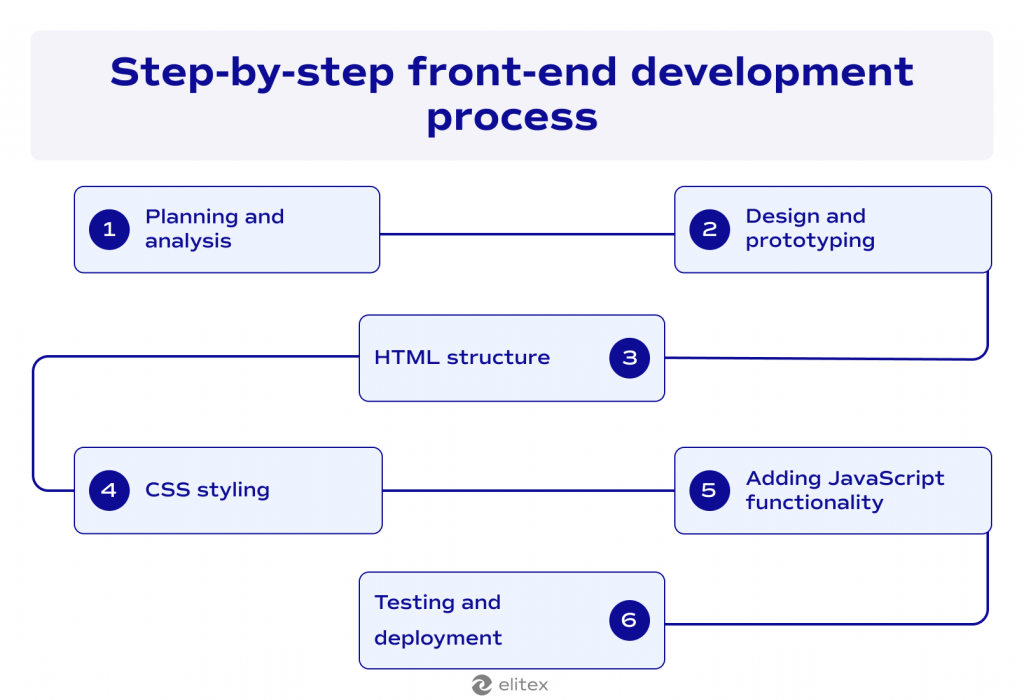News Blast
Stay updated with the latest happenings around the world.
JavaScript: The Unsung Hero of Front-End Development
Discover why JavaScript is the secret weapon behind stunning front-end experiences. Unlock the magic of web development now!
Understanding JavaScript's Role in Enhancing User Experience
JavaScript plays a crucial role in enhancing user experience on the web by enabling dynamic content that responds to user interactions. Unlike static HTML, JavaScript allows developers to create interactive elements such as drop-down menus, image sliders, and modal windows. These features provide users with a seamless and engaging experience, making it easier for them to navigate through websites. For instance, JavaScript frameworks like React and Vue.js allow for the creation of single-page applications, which load content without requiring a full page refresh, leading to faster load times and improved performance.
Moreover, JavaScript can significantly improve website accessibility and usability through features like form validation and real-time feedback. By implementing JavaScript-enhanced forms, users receive instant notifications about errors or successful submissions, facilitating a smoother interaction with the website. Furthermore, using AJAX (Asynchronous JavaScript and XML) enables websites to retrieve data from the server in the background, ensuring that users can continue their activities without interruptions. This integration of JavaScript into web design not only optimizes functionality but also elevates overall user satisfaction and retention.

10 Essential JavaScript Features Every Front-End Developer Should Know
JavaScript is an indispensable language for front-end developers, and mastering its features can significantly enhance your coding efficiency. Among the 10 essential JavaScript features every front-end developer should know, one of the most powerful is asynchronous programming with Promises and async/await. These constructs allow developers to handle operations like API calls without blocking the main thread, enhancing both performance and user experience. Furthermore, knowing how to manipulate the Document Object Model (DOM) dynamically is crucial; features like Event delegation and DOM manipulation methods can help you build more interactive web applications.
Another vital feature to grasp is template literals, which simplify string interpolation and multi-line strings, providing readability and flexibility in your code. Following closely are spread operators and rest parameters, which not only streamline working with arrays and objects but also enhance function arguments handling. Additionally, understanding the differences between var, let, and const is critical for managing scope and variable declarations effectively. Moreover, as front-end technologies continue to evolve, familiarity with modern frameworks often requires developers to understand module syntax, making the use of import and export statements essential for productive coding.
How JavaScript Powers Modern Web Applications: Common Questions Answered
JavaScript plays a pivotal role in the development of modern web applications, acting as the backbone that enables dynamic and interactive user experiences. As a versatile and essential programming language, it empowers developers to create rich, responsive interfaces that engage users effectively. In today's digital landscape, the use of JavaScript is nearly ubiquitous, functioning seamlessly alongside HTML and CSS. This collaboration allows for the implementation of complex functionalities, such as real-time updates, form validations, and animations, which significantly enhance the overall usability of web applications.
Many developers and businesses often have common questions regarding the capabilities of JavaScript. For instance, one might ask, "What makes JavaScript the preferred choice for modern web development?" The answer lies in its extensive ecosystem, including frameworks like React, Angular, and Vue.js, which streamline the development process and offer tools for improved performance. Furthermore, JavaScript's compatibility with various platforms ensures that applications remain functional across devices and browsers, making it a crucial element for anyone looking to build scalable and maintainable web solutions.